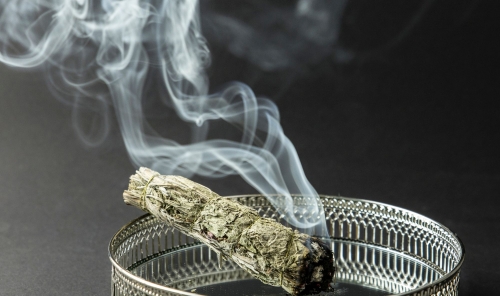Shura Council Backs Crackdown on Herbal Smoking Alternatives
TDT | Manama
Email : editor@newsofbahrain.com
On Sunday, the Shura Council gave its backing to a government-drafted bill that cracks down on herbal and non-herbal smoking alternatives, including those without nicotine. Traders found selling these products could face fines of up to 100,000 dinars and a year behind bars, while users may also be penalised. Businesses caught importing or distributing these substances risk having their stock seized or their shops shut for up to three months.
The legislation, which the lower house signed off on last December, aims to close a legal gap that has allowed these products to remain on the market despite growing concerns over their effects on health. The Ministry of Health has warned that these alternatives expose users to the same risks as tobacco. It has linked them to lung disease, heart conditions and various cancers and has taken issue with firms promoting them as safe substitutes despite evidence suggesting otherwise.
The bill, backed by the Services Committee, is being pitched as part of a wider effort to tighten smoking laws and sharpen public awareness. Committee rapporteur Dr Fatima Al Koheji said it was a necessary step to ‘protect society and prevent these substances from spreading’.
Shura Council members did not hold back in their warnings. Dr Jameela Al Salman dismissed claims that herbal alternatives were less harmful. ‘They contain the same cancer-causing substances as regular tobacco,’ she said. ‘If we can limit their use, we can reduce their harm.’ She argued that the bill gave the law sharper teeth and kept Bahrain in step with broader anti-smoking efforts.
Dr Ali Al Haddad turned his fire on social media platforms, which, he said, were being used to push these products to a younger audience. ‘The danger of these substitutes is doubled,’ he said. ‘We must crack down on their sale, including electronic cigarettes, and make sure the penalties are strong enough to deter traders.’
Dr Ibtisam Al Dallal painted an even bleaker picture, saying these substances were packed with toxic chemicals that made them just as harmful as standard cigarettes. ‘There’s no real difference between them,’ she said. The proposed crackdown, she added, would not just help public health but also ease the burden on the healthcare system.
Lina Habeeb said the laws around smoking needed regular updates to keep pace with the changing market. ‘We need stronger enforcement and more public awareness,’ she said. ‘Schools and universities should be running workshops, and the authorities need to keep a close eye on the market.’
Dr Ahmed Al Arrayedh went a step further, suggesting that Bahrain should look at treating smoking itself as a criminal act. ‘In some places, it’s already considered a crime,’ he said. He also pushed back against claims that tobacco farming had a legitimate purpose. ‘It only leads to addiction,’ he said. ‘The state is spending vast sums treating cancer patients, and tobacco use is a major cause. Approving this bill will help bring down those costs.’
Ali Al Aradi raised concerns over some of the bill’s wording, questioning whether it met constitutional standards. ‘Laws don’t usually refer to people as “criminals” but as “perpetrators of criminal acts”,’ he said. He also flagged gaps in Article 11, which does not say whether importing herbal substances is banned with or without a licence. ‘Nor does it specify whether these substances are harmful or not,’ he said, calling for changes to make sure the law targets products that pose a genuine risk.
With the bill now moving through the council, a final vote is expected at the next session.
Related Posts

